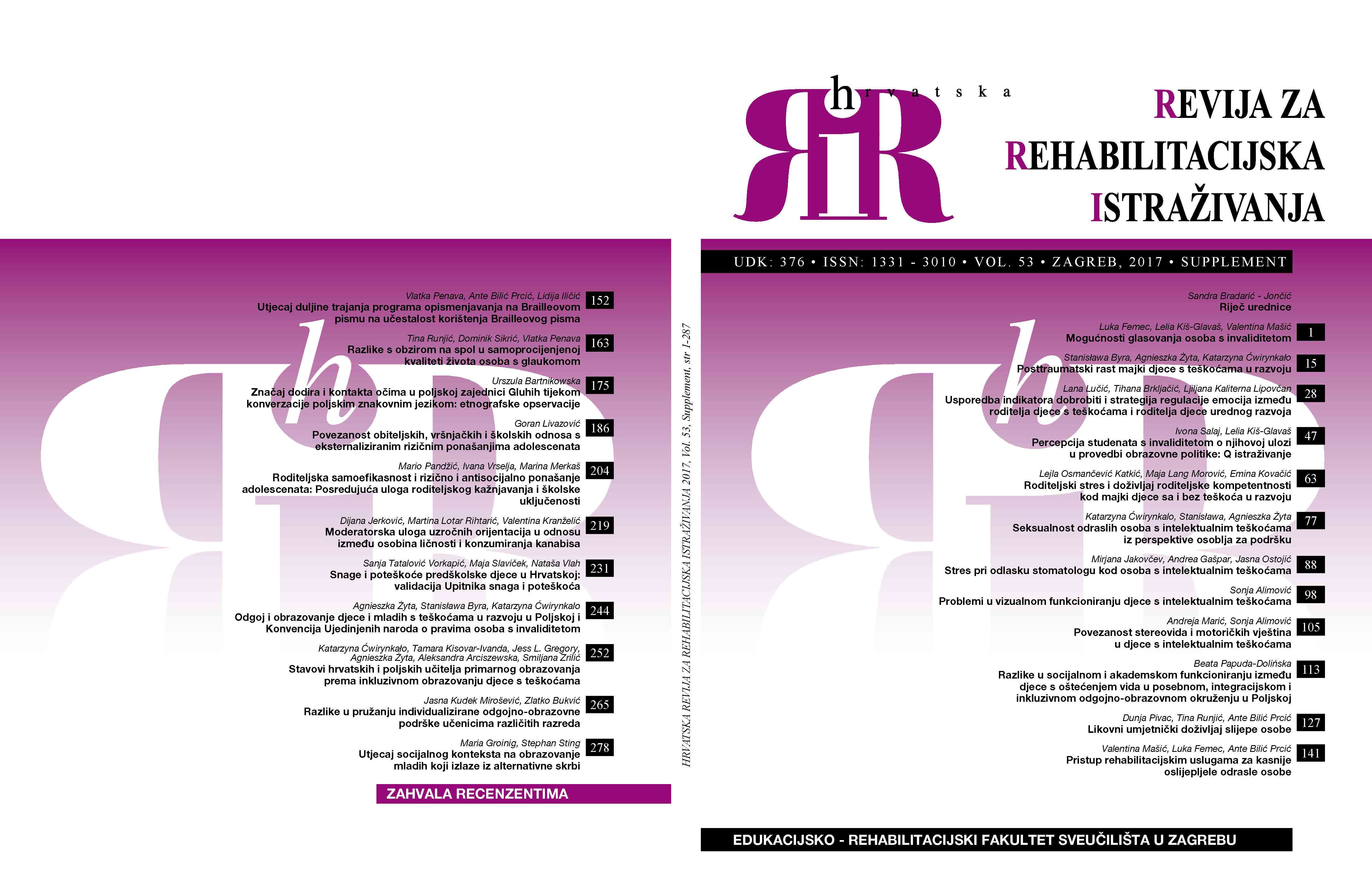Usporedba indikatora dobrobiti i strategija regulacije emocija između roditelja djece s teškoćama i roditelja djece urednog razvoja
A comparison of well-being indicators and affect regulation strategies between parents of children with disabilities and parents of typically developed children
Author(s): Lana Lučić, Tihana Brkljačić, Ljiljana Kaliterna-LipovčanSubject(s): Social Sciences, Education, Psychology
Published by: Sveučilište u Zagrebu, Edukacijsko-rehabilitacijski fakultet
Keywords: well-being; parents of children with disabilities; life satisfaction; happiness; affect regulation strategies;
Summary/Abstract: Research to date has shown that the well-being of parents of children with disabilities is lower than that of parents of typically developed children. However, the vast majority of this research has been conducted with this exact purpose in mind, thus placing parents and their children’s disability in the spotlight, which may have resulted in a distortion in the participants’ answering process. In addition, participants were mostly chosen because they have or do not have a child with disabilities, while other relevant characteristics were poorly matched. The aim of the research described in this paper was to compare parents of children with disabilities to a corresponding group of parents of typically developed children in terms of various well-being indicators and specific sources of life satisfaction. This study was conducted within the framework of the Croatian Longitudinal Study of Well-Being (CRO-WELL) project. The sample used in this study consisted of 41 parents of children with disabilities. Each of these parents was matched to a very similar individual with typically developed children. Consequently, we obtained two samples in which the majority of participants were women, married, living in a large city, and employed, two-thirds of whom had completed secondary school education at least. Differences emerged regarding satisfaction with free time, indicating that parents of children with disabilities were less satisfied than parents of typically developed children. In addition, parents of children with disabilities felt pleasant less frequently. Both groups of parents used active affect regulation strategies more often than passive ones as tools to deal with negative emotions. Proactive strategies were related to higher well-being levels, while passive strategies were related to lower well-being levels, a trend that became particularly evident among parents of children with disabilities.
Journal: Hrvatska revija za rehabilitacijska istraživanja
- Issue Year: 53/2017
- Issue No: Supp.
- Page Range: 28-46
- Page Count: 19
- Language: English

